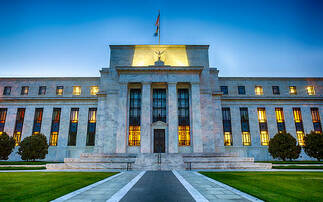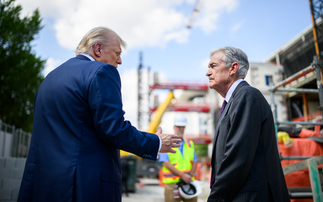In the first of a special three-part Big Question, fund managers give their views on whether President Trump can deliver on his campaign promises, and what this will mean for markets.
Nick Peters, multi-asset portfolio manager at Fidelity International
More like 'Dubya' than Reagan
Markets are too optimistic about a Trump presidency and have essentially priced in a 'best Trump' scenario. Pricing in tax cuts and extra fiscal spending is all well and good, but the S&P Industrials sector has risen by 8% in advance of any material details.
At the same time, there is little indication about what the impact of this stimulus will be in an economy which is at, or close, to full capacity. Comparisons to Ronald Reagan are popular, but I think George W. Bush is more relevant - fiscal deficits and large tax cuts did little to boost US growth in the mid-2000s.
Of course, there is also a broader question about the extent to which the markets have been factoring in the Trump effect versus better economic growth generally. PMI data has been unequivocally strong over the past few months and our own economic leading indicator has risen to post-2013 highs.
Regardless, there are still plenty of reasons for a pause for breath.
Didier Saint-Georges, managing director at Carmignac
The return of the 'plain capitalist'
Trump, a businessman who made it to President of the US, represents a sudden return of plain capitalism, with all its flaws and potentials. It means less regulations, less taxes, more investments and more focus on competitiveness.
No wonder a wave of optimism is sweeping the US right now, as illustrated by the massive rise in consumer confidence and small business optimism since election. Equity markets duly reflect this major turning point.
However, investors may be missing an important point: the MSCI World's impressive 87% rally in the past five years was mostly a re-rating, which has taken the market valuation to a 17.5X earnings multiple extreme. This re-rating was driven by the action of central banks, which brought interest rates to the floor.
Now inflation is awakening, so bond yields are finally bottoming out, and central banks will not be able to do much about it. So the Trump presidency could turn out to be much better for the US economy than for equity investors.
Paul Hodges, chairman of International eChem and editor of The pH Report
Morning in America? No chance
Wall Street has the wrong idea about Trump. It has decided he is a new Ronald Reagan and will deliver a major bull market with his policies. Unfortunately, investors have forgotten their history.
Both men certainly share a link with the entertainment industry. But Reagan was a West Coast governor before he became President, and took office towards the end of one of the worst recessions in the 20th Century.
By contrast, Trump is an East Coast property tycoon and takes office at the end of an eight-year bull market. Critically, the demographic background to their presidency could not be more different.
For Reagan, it was "Morning in America", with the vast baby boomer cohort coming into their peak wealth creation years.
Trump, by contrast, inherits a more divided society. The ageing white boomers are approaching retirement, whilst over 90% of population growth since 2000 has been to the poorer, non-white minority communities. Generating Reagan-like growth is impossible, given this context.












